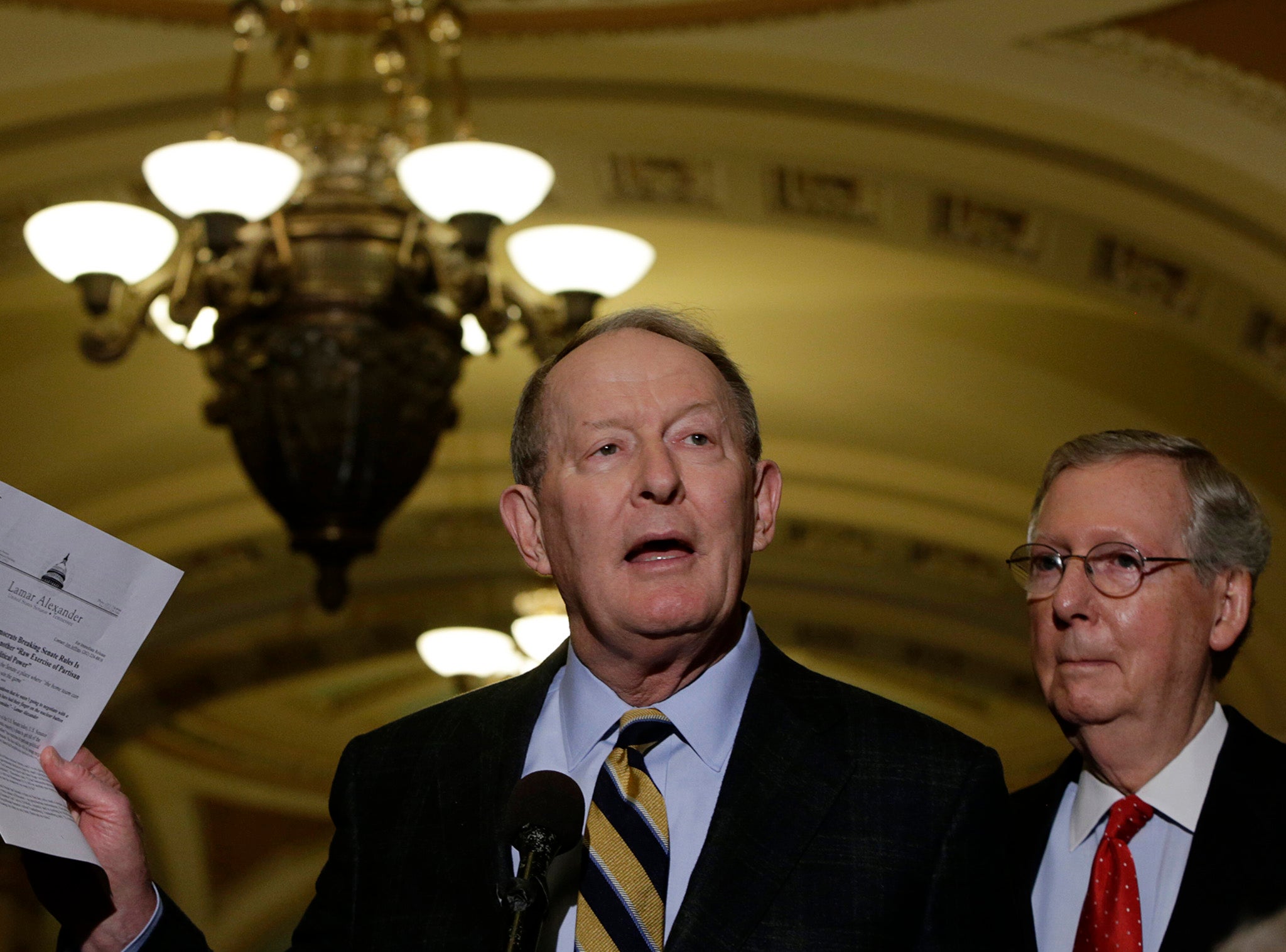Barack Obama's legacy of loan relief for students could be dismantled as early as January
The regulations help students who claim they were defrauded by for-profit colleges

Your support helps us to tell the story
From reproductive rights to climate change to Big Tech, The Independent is on the ground when the story is developing. Whether it's investigating the financials of Elon Musk's pro-Trump PAC or producing our latest documentary, 'The A Word', which shines a light on the American women fighting for reproductive rights, we know how important it is to parse out the facts from the messaging.
At such a critical moment in US history, we need reporters on the ground. Your donation allows us to keep sending journalists to speak to both sides of the story.
The Independent is trusted by Americans across the entire political spectrum. And unlike many other quality news outlets, we choose not to lock Americans out of our reporting and analysis with paywalls. We believe quality journalism should be available to everyone, paid for by those who can afford it.
Your support makes all the difference.Barack Obama's student loan relief legislation could be among the first elements of his legacy to be dismantled by the new Republican-majority Congress.
Known as the "Borrower Defence", the regulations lay out procedures to help students who claim they were defrauded by for-profit colleges. The President-elect's own for-profit college, Trump University, is currently subject to one such lawsuit.
The legislation allows students to make their fraud claim to the Education Department and apply for a refund of federal money they borrowed and then paid to the university in question.
Republicans opposed the rule when it was proposed. Senator Lamar Alexander from Tennessee, who chairs the Senate committee on education, is looking to overturn the legislation.
The law was only introduced a few days before the election, and as such it can easily be annulled under the 1996 Congressional Review Act.
That law allows Congress 60 legislative days to reverse regulations with nothing more than a simple majority vote in both houses.
Even if the rule is not overturned, Donald Trump's administration could instruct government agencies to be more restrictive in how they interpret "Borrower Defence."
The 45th President's set up Trump University in 2005, but it was shut down in 2010 following a number of lawsuits.
The defunct university is currently involved in a lawsuit filed by the New York Attorney General for illegal business practices. Mr Trump is named as a defendant and could yet give evidence in the case, despite his status as President-elect.
Education Secretary John King has defended the Borrower Defence rule, saying the government addressed a full range of criticisms in the final version of the student relief regulations.
President of the National Association of Student Financial Aid Administrators, Justin Draeger said: "The fact remains that students need some sort of process for student loan discharge in the case of a school closure or fraud.
"I'm not sure it's as easy as simply voiding the entire regulation."
The "Borrower Defence" rule was inspired by the dissolution of Corinthian Colleges Inc, a for-profit higher-educational company, in 2015.
More than 100 former students have refused to pay back their federal loans dating back to their time at the company's educational establishments.
In 2010, the company admitted it received over 80 per cent of its revenues from federally-funded student aid programs.
Join our commenting forum
Join thought-provoking conversations, follow other Independent readers and see their replies
Comments